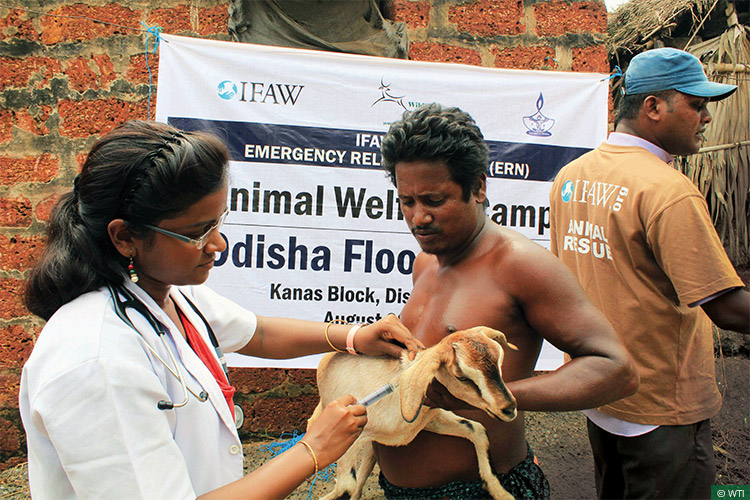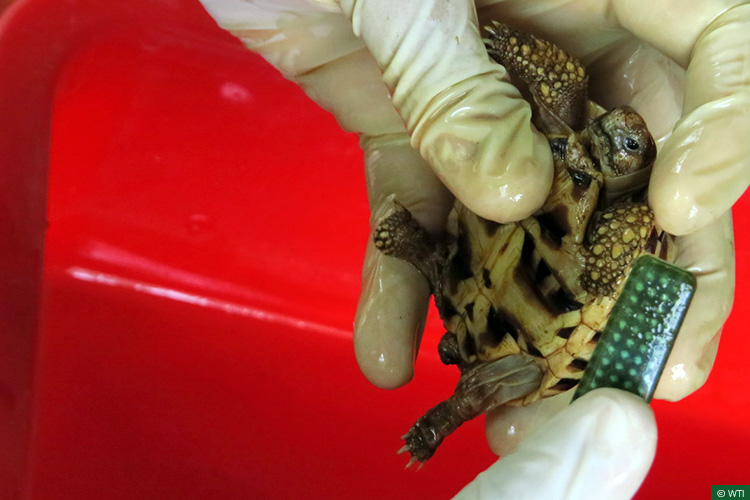PARTNERS: International Fund for Animal Welfare
PROJECT LEAD: Abhishek Narayanan (abhishek@wti.org.in)
INDIA HAS A MULTITUDE OF WILDLIFE REHABILITATORS and animal welfare personnel attending to animal emergencies across the country. Many of them work as either individuals or through organisations, often in a scattered manner without any technical communication with experts or without the opportunity to share their experience with rehabilitators across the country.
To bridge this gap and strengthen and streamline wildlife rehabilitation efforts in the country, the Emergency Relief Network (ERN) was launched by Wildlife Trust of India (WTI) in partnership with the International Fund for Animal Welfare (IFAW). ERN acts as a platform for expert and amateur rehabilitators and those working for wildlife conservation, including wildlife veterinarians, forest officials, biologists and others, to exchange, share and contribute their knowledge and professional skills in the care for animals in crisis and distress. Initiated in the year 2004, it was earlier known as Wildlife Rehabilitators Exchange Network (WREN) and in 2007 was renamed ERN.
IFAW-WTI also uses this network of committed responders to urgently reach wildlife emergencies and disasters reported from different parts of the country.

ERN in Action
Floods: Bihar, Assam, Rajasthan, Odisha, Tamil Nadu and Gujarat
Through ERN, IFAW-WTI has provided immediate relief to livestock in flood affected areas to prevent the spread of infectious diseases through immunization and quarantine. The team also provided fodder to livestock stranded in villages that were cut off from the rest.
Tsunami: East Coast of India
During the 2004 tsunami that killed over 10,000 people and several thousand livestock, the ERN team was actively involved in providing relief to animals all along the coast of Tamil Nadu and Andhra Pradesh.
Cyclone: Odisha, Andhra Pradesh and Tamil Nadu
During cyclones, the ERN team provided veterinary and husbandry support to over 13,000 animals.
Man-made disasters: Gujarat and Rajasthan’s Kite-flying festival
ERN vets also helped in treatment and rehabilitation of birds injured during kite flying festival (Makar Sankranti) in Gujarat and Rajasthan. The bird injuries happened due to the glass-coated thread used for flying kites. Affected birds included cranes, pelicans, seagulls, kites, egrets, storks, eagles, ducks, owls, parakeets, pigeons, doves and even crows.
Wildlife Rehab: Rehab of repatriated Indian Star tortoises in Tamil Nadu and Kerala
IFAW-WTI was involved in four successful rehabilitation programmes of repatriated Indian star tortoises in Andhra Pradesh, Tamil Nadu and Kerala. The rehabilitation was carried out by trained personnel who, besides taking care of the confiscated animals, also monitored their range use post-release.
Who Can Become an ERN Member?
How to Become an ERN Member
How Can Members Contribute?

Benefits of Getting Enrolled as an ERN Member
For more information contact: ern@wti.org.in or phone: 0120-4143900.